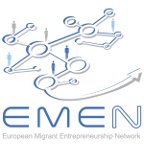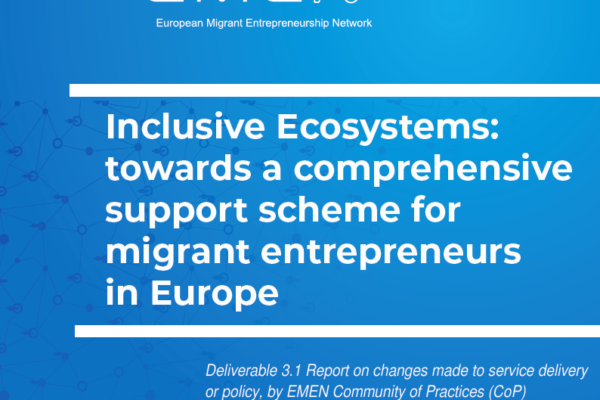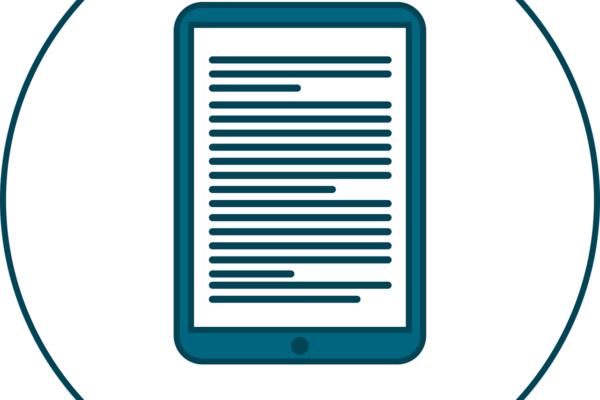General questions
Could you present UNITEE’s activities? What is your role in it?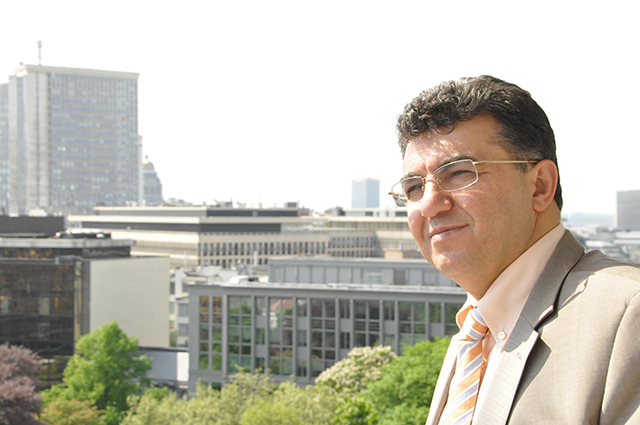
My name is Adem Kumcu, I am the President of UNITEE, the New European Business Confederation, based in Brussels, Belgium. Originally, we wanted migrant and refugee entrepreneurs to get much better services, not only from migrant business associations but also from the entrepreneurial support ecosystem in the region they are active in. But unfortunately, the reality is that there is a mentality of “islands” and not an ecosystem where different actors serve this specific group of entrepreneurs to cooperate in a coordinated way. When developing the project, we tried with AEIDL to develop a holistic approach to support much better migrant and refugee entrepreneurs through Europe to tackle that issue.
What is UNITEE’s role in the EMEN project?
In the original idea of the project, we had three main topics supporting migrant and refugee entrepreneurship. In the EMEN project, UNITEE is responsible for the “Community of Practices 3” (CoP3), which is about professionalisation of migrant entrepreneurs’ associations and diversity management of mainstream business associations.
On the one side, we have the migrant business associations that we want to professionalise and to future proof with the digitalisation of services. Why? Because the digital revolution is already happening. Most of the time, Small and Medium Enterprises (SMEs) are not able to digitalise their business in general. Migrants and refugees are doing the digitalisation transition even later than other SMEs. The question is then how to overcome the digitalisation gap. The second ambition in the professionalisation of migrant business associations is to make them part of the existing supportive infrastructure. Not to marginalise the support of migrant entrepreneurs but to help migrant business associations to become part of the existing ecosystem to work in a synergetic cooperation with the local actors, among others.
On the other side, we have the chambers of commerce who need to develop a cultural sensitivity and diversity. It is not enough to professionalise migrant business associations. It is also important to help the other actors of the supportive ecosystem. The problem is that these other actors lack some cultural sensitivity in helping the migrant entrepreneurs. In CoP3 we have a strategic alliance with EUROCHAMBRES, to better understand the specific needs of migrant and refugee entrepreneurs and to adapt their services and supportive actions to have a bigger positive impact on their success.
How did you develop the training? What are the objectives of the training and coaching UNITEE is implementing? What tools are you using?
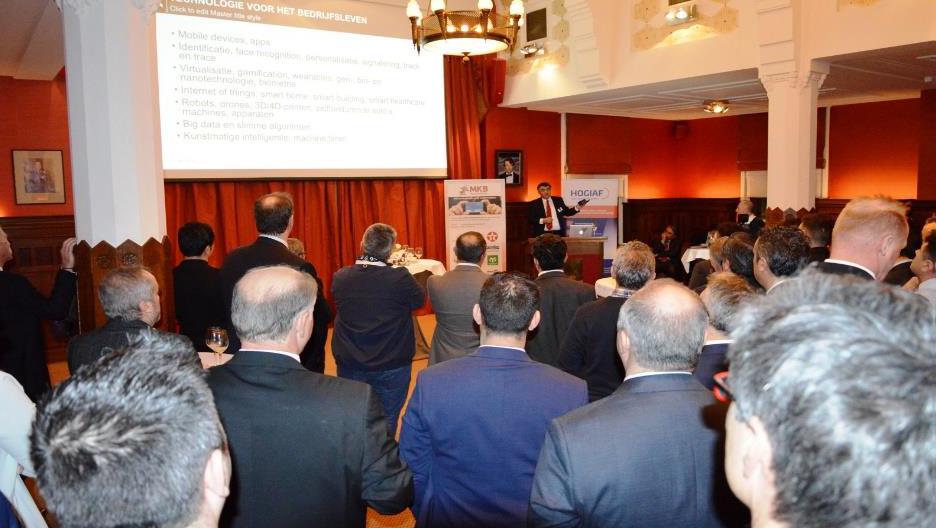 When developing the activity for EMEN CoP3, we started with two surveys. One was oriented towards a network of migrant business associations where we wanted to understand what their level of professionalism was and what difficulties they had in serving their members. The other survey was for cultural sensitivity and diversity management of chambers. Based on this, we decided to develop a training to professionalise these migrant business associations and to help chambers to develop their cultural sensitivity and to develop a diversity management system in their organisation.
When developing the activity for EMEN CoP3, we started with two surveys. One was oriented towards a network of migrant business associations where we wanted to understand what their level of professionalism was and what difficulties they had in serving their members. The other survey was for cultural sensitivity and diversity management of chambers. Based on this, we decided to develop a training to professionalise these migrant business associations and to help chambers to develop their cultural sensitivity and to develop a diversity management system in their organisation.
Following this, we have two tracks: one is a training for migrant business associations and another one is the development of a tool for chambers. During our research, we found out an already excellent existing tool on the market, the “Better Entrepreneurship Tool” that EUROCHAMBRES is now communicating to their chambers.
Training for migrants entrepreneurs associations
How did you get in contact with migrant business associations?
Based on the analysis we did with EUROCHAMBRES for the Action plan of the project, I started to take contacts with migrant business associations to know which ones were interested in a training to professionalise and future proof their organisation. One of the first to react was a French organisation called FEDIF (French-Turkish Federation of Entrepreneurs). They exist for more than 10 years but they now want to become more part of the Parisian ecosystem. After being invited by FEDIF, 19 organisations came to a three day-meeting in Paris.
What was your precise role in the training?
My function was to help them to develop a strategic transition plan. We analysed the problematic they had, and then I helped them to put in order their ideas to professionalise their organisations. At the end of the training they had a Strategic Plan and an Action Plan on how to improve the professional management of their organisation and what they first need to change. Most of the 19 organisations decided to start by renewing their Board. Then, they drafted a survey for their members to understand the desirability of their services. Secondly, they tried to understand if it is feasible for them to give their members these services. They also needed to know if they could finance this, if it is economically viable. The last point is about the sustainability and for how long they can help their members in achieving a better performance.
EMEN project helped FEDIF to digitalise their services. Another impact of EMEN on FEDIF is to organise an online “war-room”, where the coordination of actions is organised, to help them and their members to be prepared to face the impact of the Covid-19 crisis. FEDIF looked in what sectors their members are the most active: in retail, restaurants, fast-food, construction, etc. My role is to help them organise the “war-room” and what to do to be prepared for the coronavirus crisis.
What’s next for FEDIF?
The next phase for FEDIF is to form an ecosystem with other actors and entrepreneurs in general like chambers of commerce, banks and coaching network. One of the main issues FEDIF is facing is the cost to serve their members. With digitalisation and online services, the costs are reduced compare to physical meetings.
In general, what was their expectation?
They had three concrete expectations: on the financial sustainability of their organisation, about the cooperation and a strategic alliance with the local actors and on the digitalisation of their organisation.
Regarding the diversity among participants?
Ethnic diversity was less than expected as FEDIF, being a Turkish-French network, was mainly present. We need to keep in mind migrants are operating through their close network in general. Moreover, women were less represented than men.
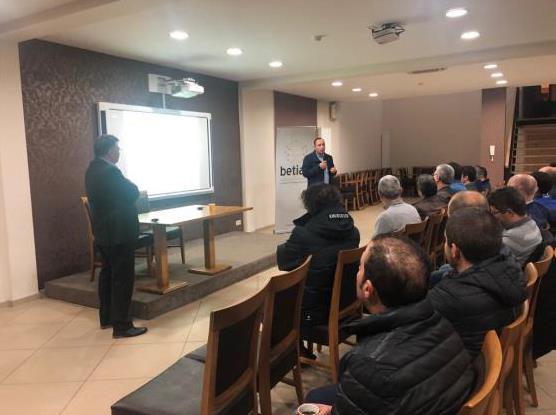
Did you develop a specific approach to coach them?
The approach came from a Strategic Plan: what is the mission of your organisation? What do you want to achieve in 3 years’ time in terms of transition? How to improve your organisation’s governance? On this point, we focused on transparency, accountability, and democracy. On how to improve their services, we first worked on the platform of the services, whether it should be physical or digital. And also, how to develop a member-oriented service. They used to have a top-down approach towards their members, so we suggested listening more to their members’ needs and expectations. The objective for the organisations is to become, in cooperation with other actors in the field, a coordinator. This is only possible in a digital and not physical way.
Training for Turkish refugees in Spain
How did you get in contact with Turkish refugees living in Spain?
An entrepreneur from Spain had a contact with FEDIF and he heard about UNITEE’s training activities with EMEN. He told me about the many Turkish refugees he is in contact with. I gave 6 trainings to 20 refugees, including 4 women. These people have difficulties to create a job for themselves because of a “paralysis”: they do not speak Spanish, they do not understand the institutions, they are not entrepreneurs in their country of origin so they do not know what to do, plus they have difficulties in finding a job in general. I want to help them by stimulating their “entrepreneurial spirit” and by organising an informal digital business club named “Business Academy”.
Can you present the objectives of the training?
The first objective for them is to understand how the Spanish economy works: what are the Spanish consumers’ needs, what are the most successful businesses, what can be exported. I wanted to put them in contact with migrant entrepreneurs, especially the members of UNITEE, to cooperate with to find a market in Europe and to export products across Europe. Moreover, to help them find migrant entrepreneurs who want to invest in a start-up in Spain.
What is their background?
They are highly educated people who were professionally active in Turkey but have difficulties in Spain in finding or launching a business. They have no business experience. Some are engineers (IT sector), teachers, lawyers… Most of them arrived 16 months ago with their families and are taking Spanish classes.
How can these refugees achieve creating their own business?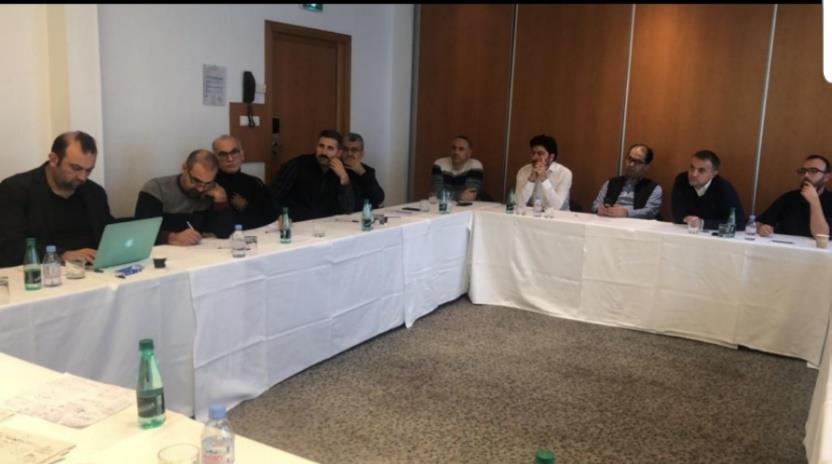
They need to be organised in sectors. One of the most booming sectors in Spain is organic food: try to find original products that may find their market in Europe. I wanted to activate them to think about a business idea. During the training, they organised themselves in small work groups of 4-5 people called “committees” focusing on online marketing or organic food, among others.
I coached them about the market research process and how to develop a tool for it, especially for entrepreneurs outside Spain and business ideas within Spain when you do not have the means to start a micro-enterprise. My goal was to motivate them and make them realise there is hope for them and their business.
I also asked them to get in touch with Spanish Chambers of Commerces, which they did. This allowed them to invite some representatives and to discuss with them on the Spanish economy and its opportunities.
Thanks to UNITEE’s network and contacts, I found 7 entrepreneurs from Europe, including Turkish people who live in Europe, who are all sellers either in the food sector or home furniture and interested in Spanish products. In that way, they will interact with real business people and try to find a common business idea. I will help them and coach them during the cooperation phase.
Being an entrepreneur yourself, what practical advice did you give them?
I advise them to organise their business as a “cooperative uberisation” so that clients and professionals can easily be in contact. This will help the social mobility of migrants and their integration in Europe. My advice was to get organised as a cooperative, to help each other, create social and economic added value for the Spanish market. If you want to succeed, you need to feel like a European and Spanish citizen. In order to feel successful in the country, you need to feel part of the country, you don’t have to forget your roots and country of origin. You need to understand how the country you live in works if you really want to become part of this new society and not to remain in the margin.
I also want to create a digital community with them so that they are not ghettoised. They need to invite Spanish people, other Europeans, etc. I push them to be active on a cooperative platform, through the perspective of UNITEE but also with CoP3 of the EMEN project. The coronavirus time has been a fantastic accelerator of this process. For example, it allows me to give trainings and seminars to France and Scandinavian countries in the same day. If we keep in mind its limits, digitalisation is a unique chance we have.
Did something in particular catch your attention with the participants?
Some are calling me to get some more information, some others are pessimistic, thinking they don’t have a chance. But others do not know they already have some valuable tools in their hands. Lot of them are active on social media, so they already have a valuable skill they can use! Online marketing is nowadays necessary, they can make a really good use of it with their already existing skills.
Contact details: emen@emen-project.eu

